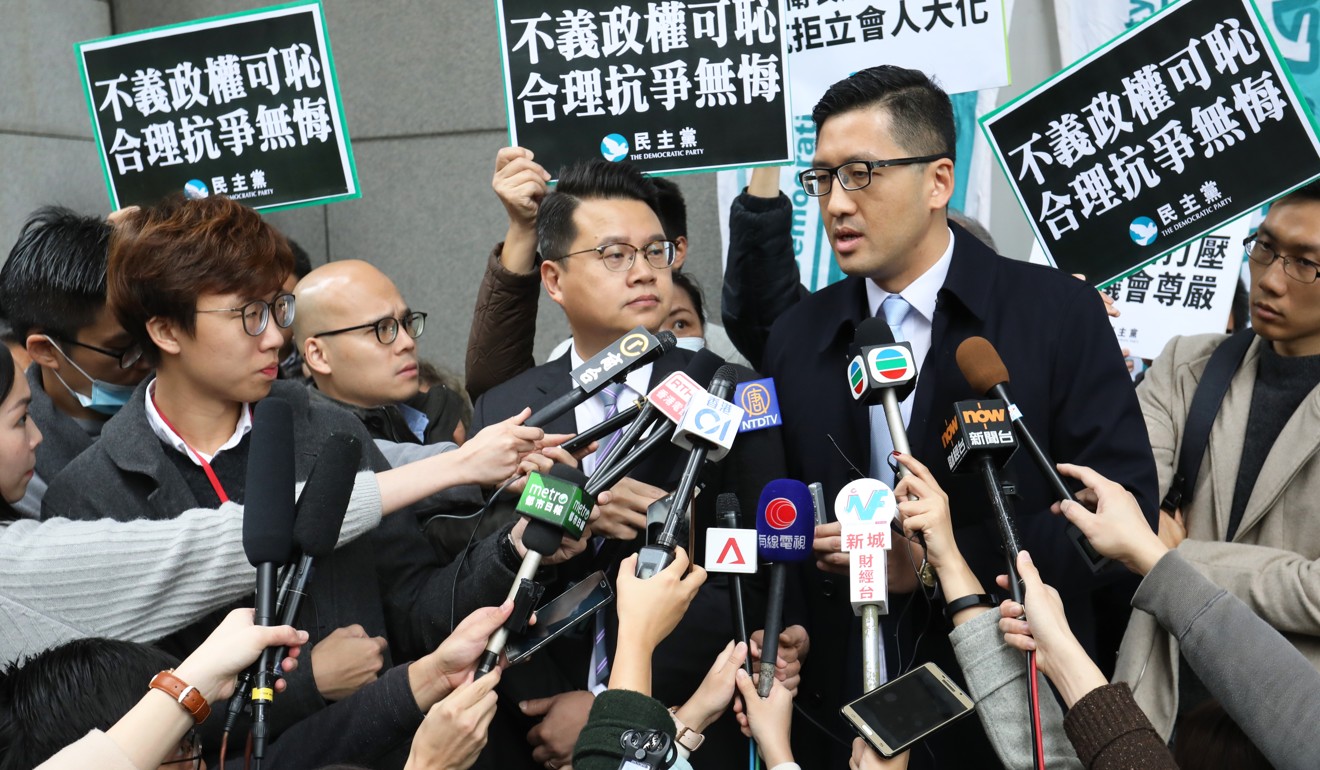
Lawmakers charged over cross-border rail Legco protest call move ‘ridiculous political persecution’
- Lam Cheuk-ting and Andrew Wan accused of breaching Legislative Council rules during debate on controversial co-location bill
- Wan also facing common assault charge in connection with incident on June 13
Two Hong Kong Democratic Party lawmakers have been charged in connection with a protest inside the Legislative Council earlier this year.
The pair, Lam Cheuk-ting, and Andrew Wan Siu-kin, were arrested and then released on bail on Monday after reporting to police headquarters in Wan Chai.
They were both charged with obstructing security guards, while Wan also faced one count of common assault after a protest on June 13, during a debate on the controversial plan to allow mainland Chinese officers to operate at the West Kowloon station for the new cross-border rail link.
They were expected to appear in Eastern Magistrates’ Court on Tuesday morning.

“It is a blatant political persecution,” Lam said. “I would absolutely plead not guilty.
“It was a peaceful protest. I didn’t throw anything. I didn’t hurt anyone. This is ridiculous.”
Wan, who also said he would plead not guilty, said the public could judge whether they had done anything wrong.
Police called the lawmakers on Friday to tell them to report to the Wan Chai headquarters to be formally arrested. They arrived on Monday with their lawyers Jonathan Man Ho-ching, and Albert Ho Chun-yan, a former Democratic Party chairman.
They were released after an hour and a half. Police presented them a charge sheet with testimony from about 10 security guards and police officers.
Lam said he asked the officers to write “no guilt over peaceful protest” as his response to the charge.
Before entering the station, Wan said the case was further evidence of the government’s determination to suppress the pro-democracy camp. He said he believed if the pair were found guilty, more opposition lawmakers would find themselves in court.
When it comes to co-location, it’s all about who is in control
“The government has taken a series of steps to suppress the pro-democracy camp, from the disqualification of lawmakers to this political persecution,” Wan said. “It is not a matter of just us two – a successful prosecution would hugely affect freedom of expression in the Legislative Council.”
Lam said Hong Kong’s leader, Carrie Lam Cheng Yuet-ngor, was the one to blame, though the chief executive had tried to present herself as having a better relationship with the pan-democrats than her predecessor, Leung Chun-ying.
“The suppression of pan-democrats got even more serious under her hands. She is worse than CY Leung,” Lam said.
Dr Chan Kin-man, one of the co-founders of the Occupy movement, was among a group of 30 supporters, including lawmakers from different parties, who gathered outside the entrance to the police station.
“No matter whether you are a scholar or a lawmaker, with a mild or radical political stance, it is clear that you will face suppression once you are part of the pro-democracy camp,” he said.
The pair were among five pan-democrats evicted from the meeting in June. Police were called to investigate injuries to two security guards.

